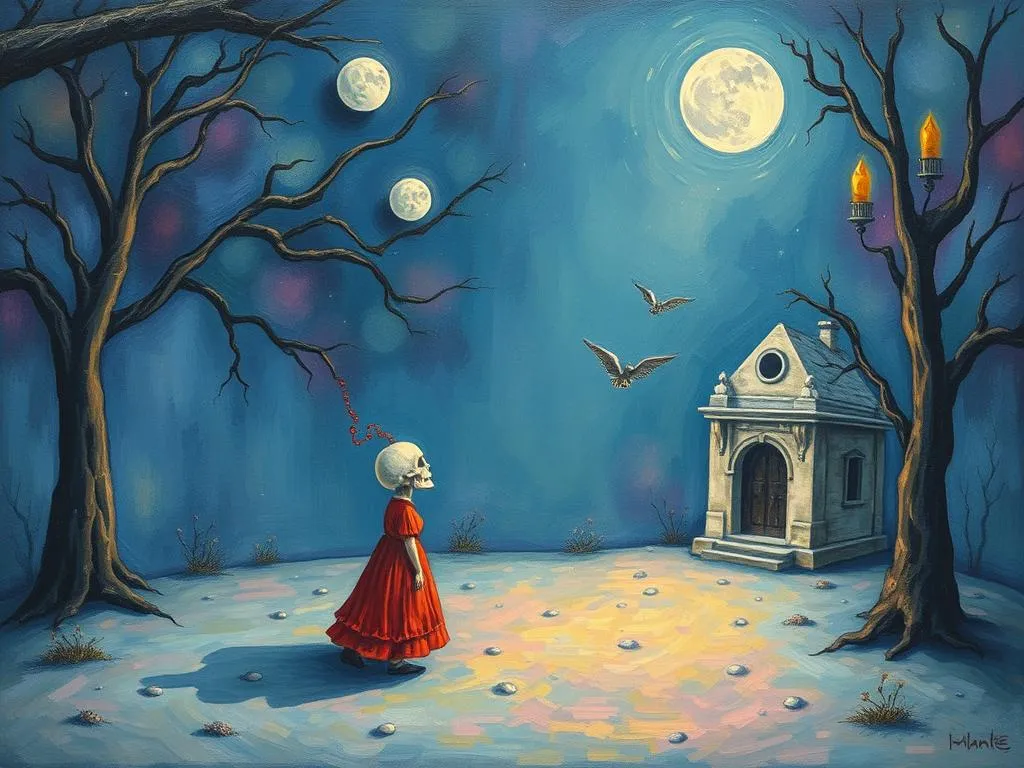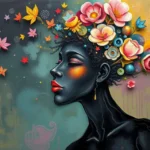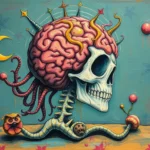
Introduction
Dreams involving the deceased can stir powerful emotions and provoke deep contemplation. The phenomenon of dreaming about the dead is a common experience, resonating with many who seek to understand its significance. These dreams often challenge our perceptions of life and death, leading to questions about unresolved feelings, grief, and connections that transcend the physical realm. As such, they intrigue not only those who have experienced them but also psychologists, spiritualists, and dream analysts alike. By exploring the symbolism embedded within these dreams, we can gain valuable insights into our subconscious and the emotions we carry forward in our waking lives.
Symbolism and Meaning
When the dead appear in our dreams, their presence often serves as a symbol for various aspects of our lives. One predominant interpretation is that these dreams reflect our feelings of grief or loss. The deceased may represent unresolved emotions surrounding their passing or even unresolved issues within our own lives. For instance, if a loved one who has passed away appears in a dream, it might signify a desire for closure or a need to confront feelings that have been left unaddressed.
Moreover, the deceased can symbolize aspects of ourselves that we have lost touch with. This might include our innocence, youth, or vitality—qualities that we associate with the person we dream about. In this sense, the dream may serve as a reminder to reconnect with these lost elements and embrace them in our current lives. The interplay between life and death in our dreams often nudges us to reflect on what we value and what we might be neglecting.
Another interpretation suggests that dreams of the dead can serve as a bridge between the material and spiritual worlds. In many cultures, it is believed that the dead can communicate with the living through dreams, offering guidance or sharing messages. Thus, encountering a deceased loved one in your dreams might be a way of receiving wisdom or encouragement from beyond. Here, the dream becomes a portal for expressing feelings that might otherwise remain unspoken, fostering healing and understanding.
Additionally, the symbolism of the deceased in dreams can vary widely based on cultural and personal contexts. For some, the presence of the dead is comforting and reassuring, while for others, it may evoke fear and anxiety. The emotions felt during these dreams often provide deeper insight into the dreamer’s current emotional state and relationship with the concept of mortality.
Key Scenarios and Variations
The interpretation of dreams involving the dead can significantly change depending on the specific scenarios and context in which they occur. For instance, dreaming of a deceased loved one smiling and offering advice might convey a sense of comfort and encouragement, suggesting that the dreamer feels supported in their current life path. This type of dream could indicate that the dreamer is processing their grief in a healthy way, allowing for a sense of connection even after death.
Conversely, a dream where the deceased seems angry or distressed can evoke feelings of fear or guilt. This scenario might indicate unresolved issues or lingering regrets that the dreamer needs to confront. It could be a call to reflect on past actions or decisions that still weigh heavily on the dreamer’s conscience, urging them to seek forgiveness or make amends in some capacity.
Another common scenario is when the dead appear in a familiar setting, such as a childhood home or a family gathering. This setting often amplifies the emotional impact of the dream, as it evokes a sense of nostalgia and longing for the past. In such cases, the dreamer might be grappling with changes in their life—perhaps feeling disconnected from their roots or the people they once held dear. The deceased may serve as a reminder to cherish these connections and honor the memories that have shaped them.
Additionally, some dreams may involve the dreamer trying to communicate with the deceased. This can lead to feelings of frustration or confusion if the message is unclear or goes unfulfilled. These dreams often reflect a deep yearning for connection and closure, suggesting that the dreamer might need to engage in self-reflection about their feelings of loss and unresolved emotions.
The context of the dream, including the emotions experienced during it, plays a crucial role in shaping its meaning. Reflecting on the feelings evoked by these dreams can help illuminate their purpose and significance in the dreamer’s life.
Real-Life Connections and Takeaways
Understanding dreams that involve the deceased can empower individuals to explore their feelings and experiences more deeply. One of the most important connections to make is recognizing how these dreams relate to our grief and emotional well-being. If you’ve recently lost someone or are navigating feelings of loss, reflecting on these dreams can provide valuable insights into your healing process. Consider journaling about the dream, focusing on the emotions you felt and any messages or symbols that stood out to you.
It can also be beneficial to engage in conversations with friends or family members about their experiences with dreams of the dead. Sharing these stories can foster a sense of community and understanding, normalizing the feelings of grief and connection that often accompany such dreams. Additionally, exploring cultural beliefs surrounding dreams and death can provide further context and comfort, helping individuals feel less isolated in their experiences.
For those who find themselves frequently dreaming of the deceased, establishing a ritual or practice to honor them in waking life can be healing. This might involve creating a small altar with photos and mementos, lighting a candle in their memory, or simply sharing stories about them with loved ones. Engaging in these practices can help solidify the bond and acknowledgment of the deceased’s impact on your life, providing a sense of closure or continued connection.
Furthermore, these dreams often serve as a spur for self-reflection. Ask yourself: What unresolved issues or emotions might be surfacing? Are there qualities or aspects of yourself that you have neglected? This reflective process can lead to personal growth and a deeper understanding of oneself. By confronting these emotions head-on, you can create a pathway for healing and transformation.
Ultimately, dreams involving the dead invite us to explore the intersection of our past and present, helping us navigate the complexities of grief and connection. By embracing the insights they offer, we can cultivate a deeper understanding of our emotional landscape and the ways in which our relationships—both past and present—shape who we are.
In conclusion, while dreams of the deceased can be intense and often unsettling, they provide a rich tapestry of symbolism and meaning that invites introspection and healing. Embrace the messages they carry, reflect on your feelings, and allow the wisdom of your subconscious to guide you toward understanding and acceptance. As you delve into the depths of these dreams, remember that they are not just a call from the dead but a profound exploration of your own life and the legacies that continue to influence you.







